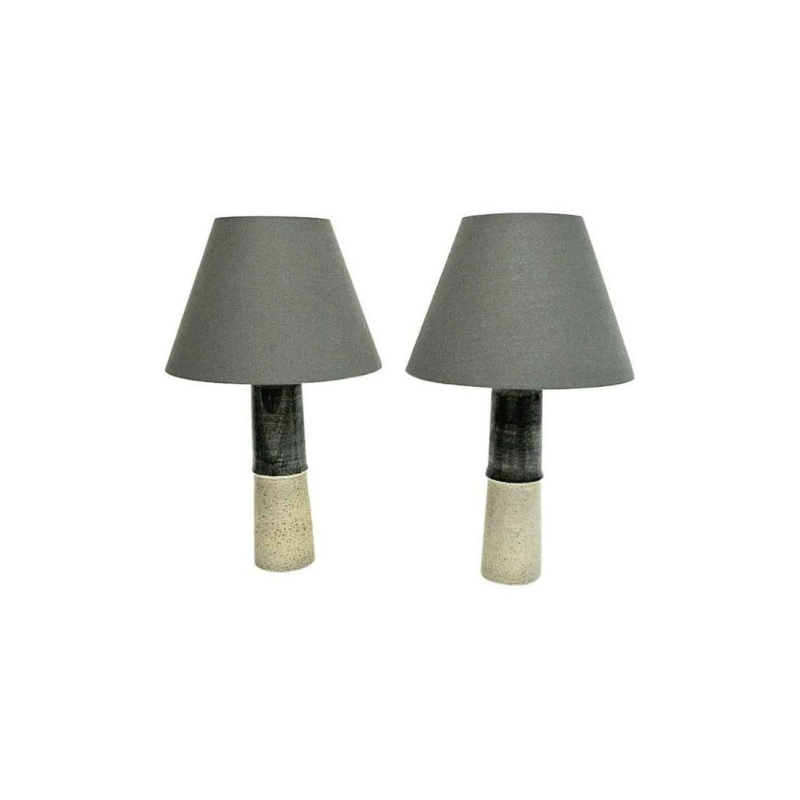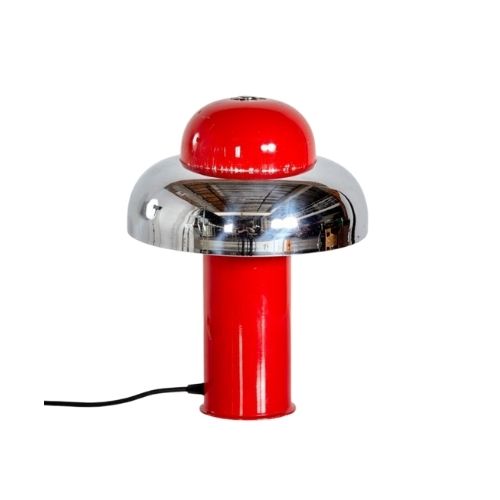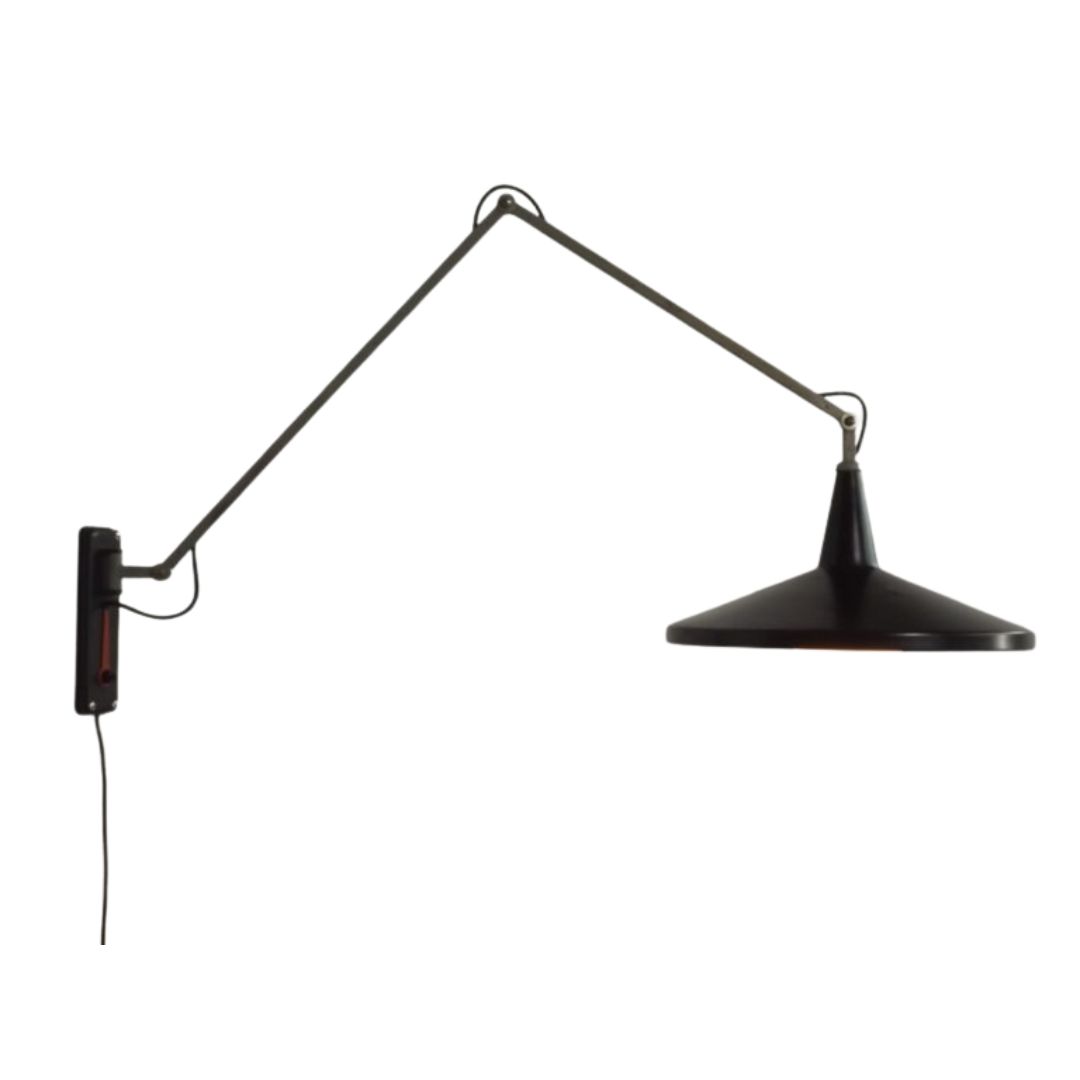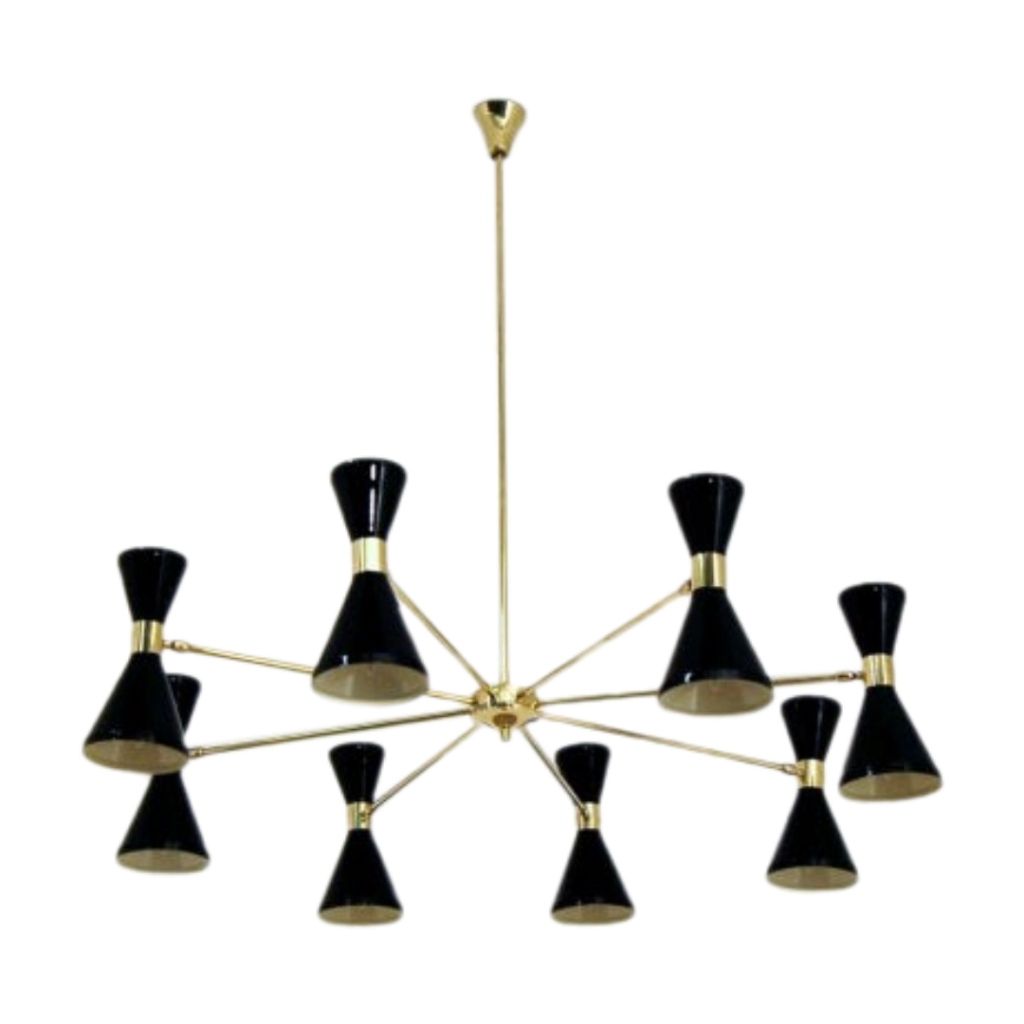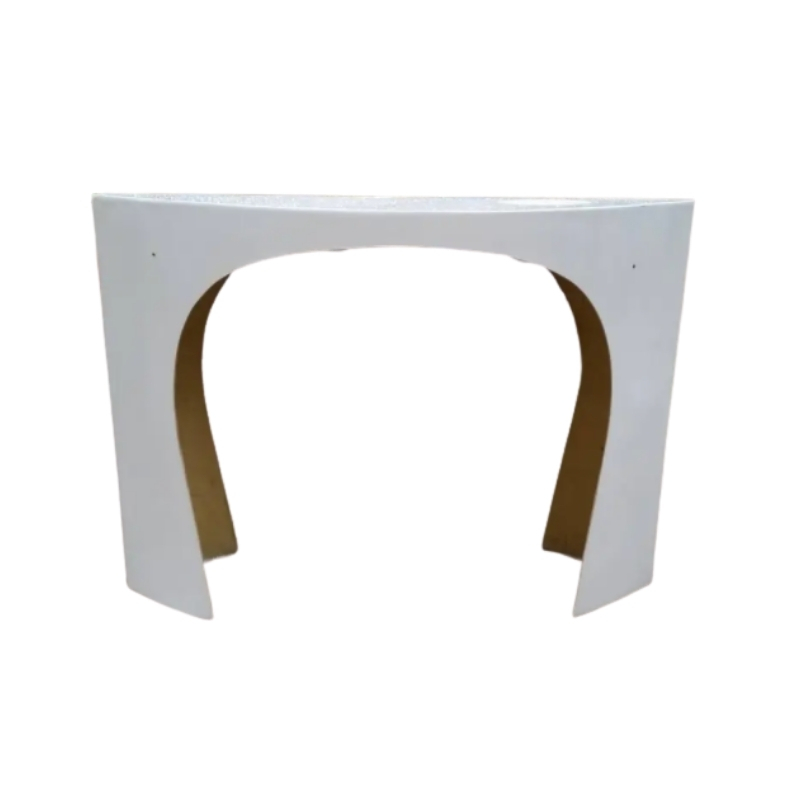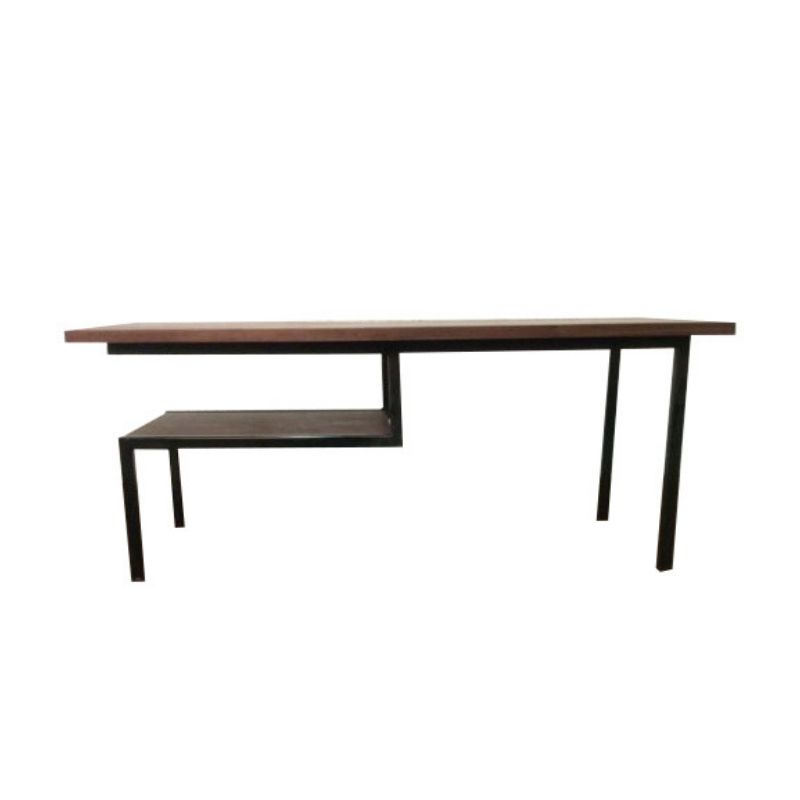I bought a pair of these today. I've found a few images on the web attributing this chair to Ib Koford-Larsen. Is this correct? The back spindles seem to appear on several Selig pieces, although usually with the thick point closer to the top of the back. There is no label, just the "Made in Denmark" stamped into the stretcher (which was assembled upside down on one of the chairs :-)). The thing that is throwing me is the scooped out armrest, it doesn't seem to appear anywhere else. Perhaps this was a short-lived variation?Any info would be greatly appreciated.  <img class="wpforo-default-image-a
<img class="wpforo-default-image-a
What is going on with the seat frame? I really don't think that white panel should be there. I am expecting to see rubber straps that you cinch tight. The frame should have oval through holes for the straps; 3 per side. And on the bottom, you should see a channel routed out on each side that a halved dowel fits into. The rubber strap passes down through the hole, around the half dowel, and then back up underneath itself, and you cinch the end tight. I an provide photos later.
I have never seen this chair with rear slats that bulged in the middle. Usually they bulge near the top, like the various other Kofod Larsen Selig import designs that use. Or like Poul Jensen's Z chair that uses the same slats oriented the other way up (bulge down). This is quite surprising!
I have seen this chair in a number of variations. The things that I have seen varied are the top bar (straight vs concave curve), and the arm rest is either hollowed out like yours, or it is smooth topped.
The "made in denmark" stamp, by the way, is consistent with Selig production. I am not sure exactly why a small number of Selig pieces got the stamp instead of the medallion. Although I believe it is easy to _speculate_ that these pieces are earlier.
And I have Selig documentation on this chair that I can post later. I believe it shows hollowed armrests like yours, although the angle of the photo makes it difficult to say for certain.
I am certain that this is a Kofod Larsen design for Selig.
I believe there is a strong likelihood that it was manufactured by Poul Jensen's company: Chr. Jensens Møbelsnedkeri. I base this upon the supposition that Poul made his Z chair, and the number of commonslities between the two chairs.
That seat bottom has not been done right. Seems to be a common theme with this seat design. I guess the dowels have been lost and the restorer can't figure out how it was supposed to work. See here for how it is supposed to be done.
http://www.designaddict.com/forum/Identification/Selig-walnut-chairs
And the fabric cover has to be a later "improvement". I would redo the seat bottom correctly if it were mine.
Edit: oh and it is Kofod. No "r". And apropos of the name, since this seems not be be widely known in English speaking places, Ib is the standard nickname for Jacob in Denmark. Obviously, he preferred to go by Ib.
Above I said we can speculate these chairs with the different seat frame and no medallion (both features always seem to go together) are earlier. Strike the "speculate". I forgot that in the linked post tchp had shown that the Z chair patent shows this seat frame design, effectively proving it is earliest.
oh, and the dowels for the underside of the seat are 3/8 inch dowels cut in half lengthwise. (The flat side goes up against the frame).
KOFOD. Argh, when I was writing the post, I had a listing I found for the same type of chair open - https://www.chairish.com/product/64759/ib-koford-larsen-danish-lounge-chair - and I cut and pasted it without verifying. If anyone has rights to change the thread title, I'd appreciate a fix.
That's interesting about Ib. When I first saw the name, I thought it was some sort of corporate identifier like LTD or SA.
Re, the webbing. On my chair, it's attached with multiple staples. The shop I bought it from had made new cushions and redid the seat. They did not know anything about these chairs. They didn't know it was knockdown and they weren't even sure it was Danish, so I'm not surprised their "restoration" is a bit of a hack. At least they didn't screw anything together. I will probably redo it at some point, it's the kind of project I like. The cushions appear to me to be too thick as well, but I have 2 little kids, so I'll wait until they destroy them before I get something more appropriate.
They also claimed it was teak. It doesn't look like it to me, but I'd be happy to be wrong. Are any of the photos clear enough to tell?
I would leave the fabric covering on the webbing. That type of webbing can be a little abrasive on some fabrics when it stretches as you shift on the seat a bit. It can cause pilling on less durable fabrics. I've seen fabric tacked over elastic webbing on all-original Danish chairs so it's not totally inappropriate. Just a thoughtful measure taken by the upholsterer, I think.
The chair did appear in a Selig catalog, and it was discontinued in that arm style. I do not know how long production lasted, or what the date is of the catalog image attached. I think it has been speculated that the armrest might have been uncomfortable to rest one's forearms on. Having sat on it, what do you think?


Thank you. That catalogue page is just what I was looking for. Except now I have to find at least one ottoman 🙂
I just spent a couple of hours sitting in it and I didn't even notice the armrests except when I consciously thought about them. They curve out a bit and the dished out section is wide enough to hold my arms comfortably. OTOH, I don't have anything to compare them to. Perhaps they lost out to the flatter style when compared side by side in the showroom. I must say that I find the typical Kofod Larsen armrest more visually appealing. But then I really like the overall lines of this chair, I'll take this armrest since it comes with the back and slats in a single plane which leads to the dramatic angle of the rear legs.
Spanky, I will leave the fabric on the seat, but I do plan on correcting the webbing. The staples are ugly and I'm afraid they may end up doing more than just cosmetic damage to the seat frame eventually.
If the staples are the bigger gauge type used in electric staple guns, they might split the wood a bit over time. If they are fine gauge from a pneumatic stapler, they're ok.
To do the webbing correctly, first test the diameter dowels you will need with whatever webbing you're using--it's probably 3/8" to 1/2", just depends on how the slots are. Other designers used this system and I've seen different sized slots.
Do the first end of each strap off the roll--do not cut a piece off first. This way you can minimize waste. Stick a loop of webbing through the slot and insert the dowel, then pull tight. Cut the webbing from the roll with about 5" extra length for gripping and pulling.
Do the same for the other end in the slot with the dowel but leave slack.
Now you will need two people. One person stretches the webbing from the top while the other person pulls the loop from underneath, getting rid of the slack.
I recently acquired this same chair from a home in Pasadena. It is in the lighter finish. I suspect the fabric is original. I am also including pictures of the webbing, which obviously needs replacing. Should give an idea of how to best go about replacing it. Hope this helps (if you haven't already replaced). Would like to see how it turned out if you did the work already!
Denmark West


Quite the coincidence, as I just picked up this chair myself. Or rather, my sister picked it up in NYC today. It will stay there for a little while before I get the chance to bring it home to Chicago. The finish to the wood looks to be in bad shape, so I'll need to figure out what to do once I get my hands on it.
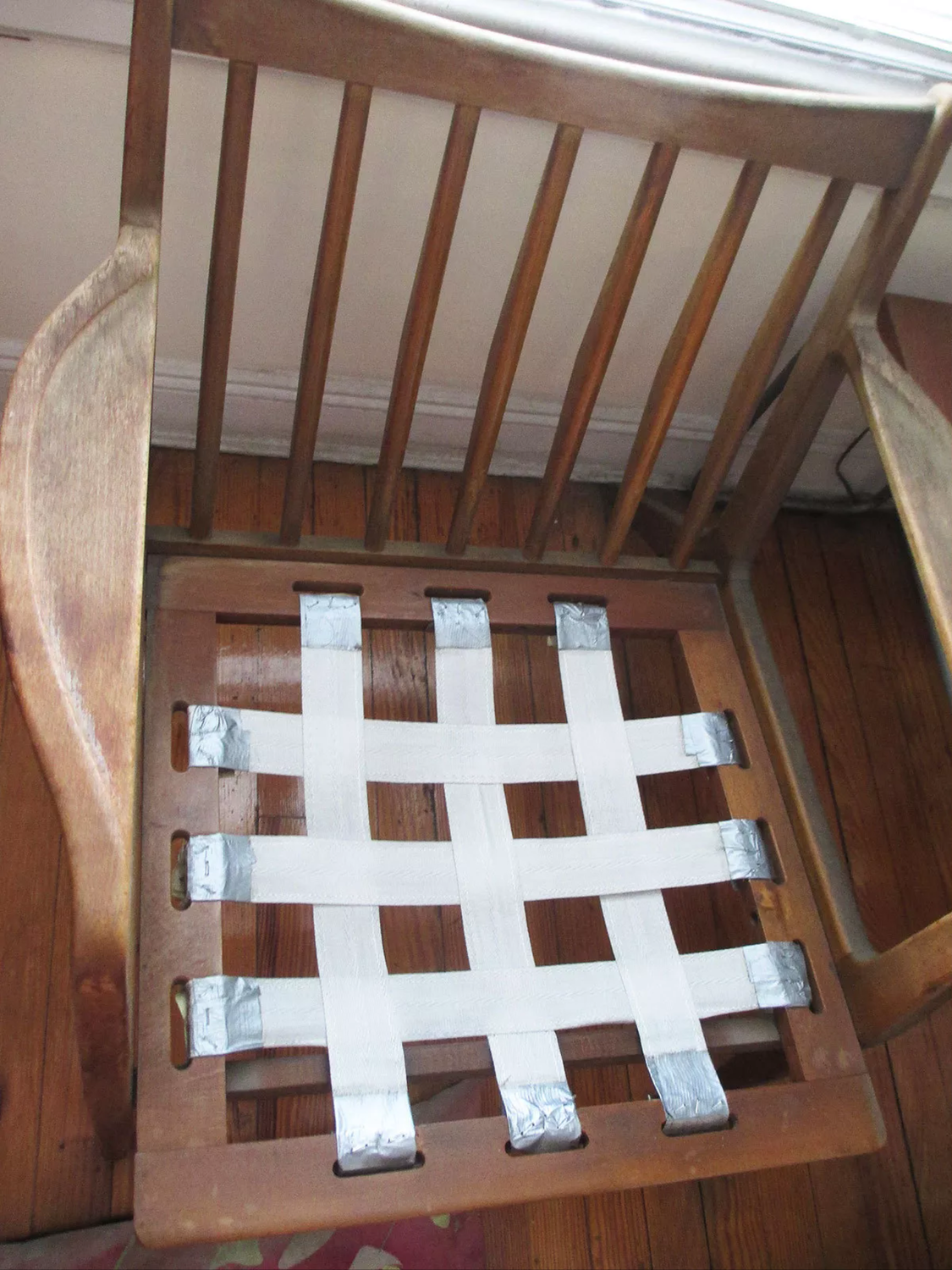
My chair just arrived today from NYC, and the finish up close is just as rough as I was expecting. Luckily the bones are still in good shape. Based upon all of the previous threads here discussing the problems associated with trying to re-stained beech, I think I'll being going down the full sanding then India ink road. I'll post photos along the way.
Thinking towards the end, what is a good way to finish the surface after the ink staining. I've never used ink stain before on furniture, and assume that the finish will be fairly matte. Would a paste wax or oil finish on top add a little satin sheen with a little added protection?
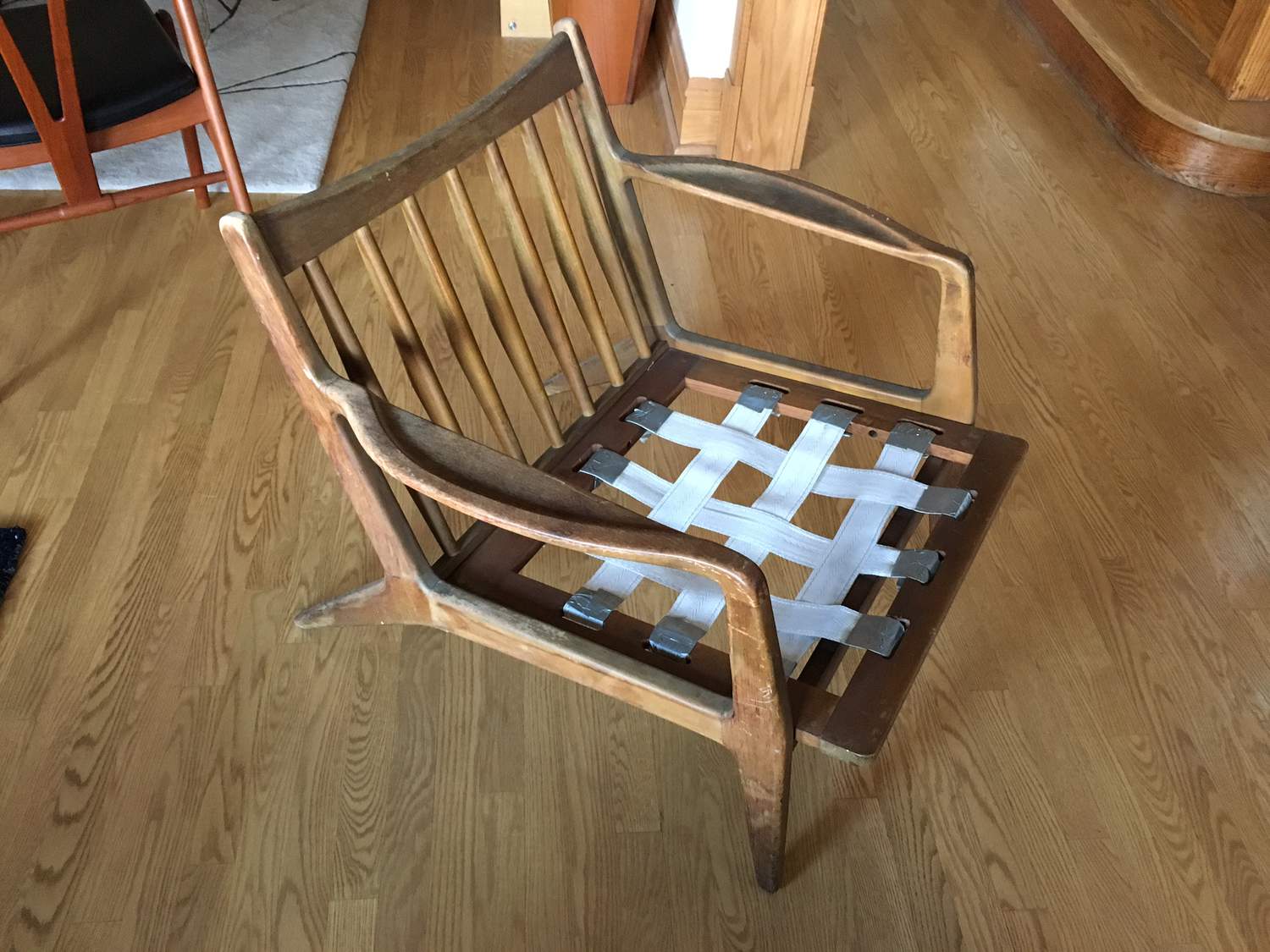
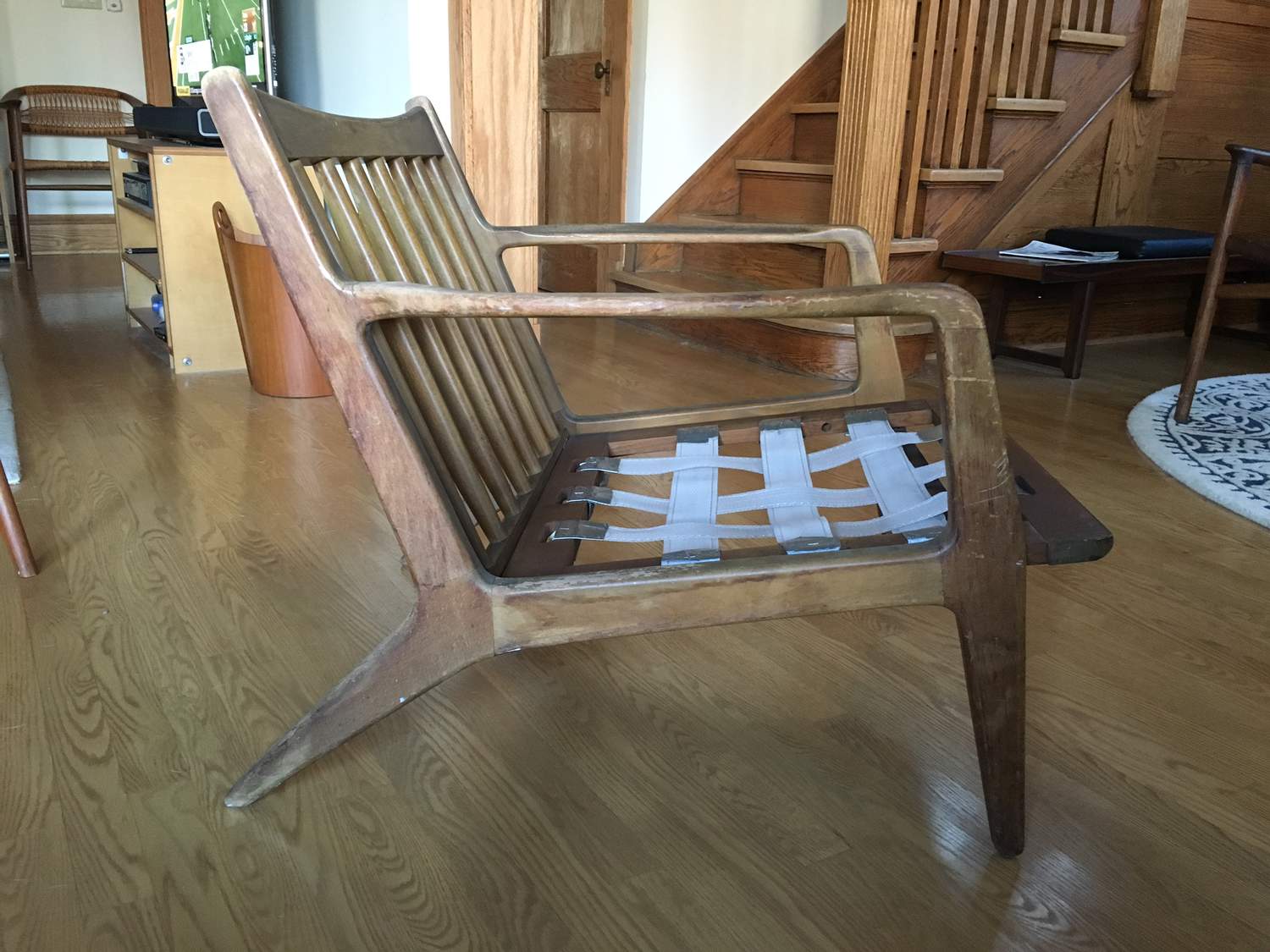
If you need any help, please contact us at – info@designaddict.com




